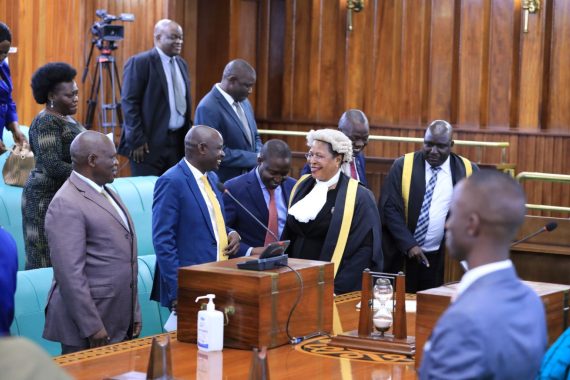Big changes are coming to how Ugandans sign contracts and export hides, after Parliament passed two hotly debated tax laws.
The Stamp Duty (Amendment) Bill, 2025 has finally done away with the long-standing Shs15,000 stamp duty on agreements and mortgage deeds. In its place comes a new thing called “near-duty”, which officials say is meant to make it easier and cheaper to do business.
According to Finance State Minister Henry Musasizi, the move will help Ugandans register agreements without stress. “We are now introducing near-duty for agreements and mortgages,” he said.
Finance Committee boss Amos Kankunda backed the changes, saying the Shs15k charge was too much and had been pushing up borrowing costs for Ugandans, especially small business owners. “We want to support access to affordable credit and encourage contract formalisation,” he told Parliament.
Even Attorney General Kiryowa Kiwanuka agreed, noting that people were being unfairly taxed even for employment letters and basic agreements. “Now you can have your agreement without paying stamp duty,” he assured the House.
Parliament also passed the Hides and Skins Export Duty (Amendment) Bill, 2025, which introduces a new $0.80 per kilo tax on all exports of hides and skins, including something called “glue stock.”
This glue stock, made from offcuts of hides and used as food called ponmo in West Africa, caused a heated debate in the House. Some MPs wanted it tax-free to promote export innovation, but others were firm: “It’s still hides and must be taxed!”
Hon. Dicksons Kateshumbwa (NRM, Sheema Municipality) said clearly, “You can’t say you’re exporting food when you’re packaging hides. URA must classify it correctly.”
AG Kiwanuka chimed in: “If it’s food, it’s not part of this law. But if URA says it’s still a hide, it must be taxed.”
In the end, MPs voted to maintain the tax on all hide-based exports, including glue stock, saying Uganda must protect its tanneries and push for local value addition.
Bottom line; No more Shs15k stamp duty on contracts, expect a new “near-duty” charge, but it’ll be cheaper. Gov’t wants to boost local industries and cut borrowing costs.


















